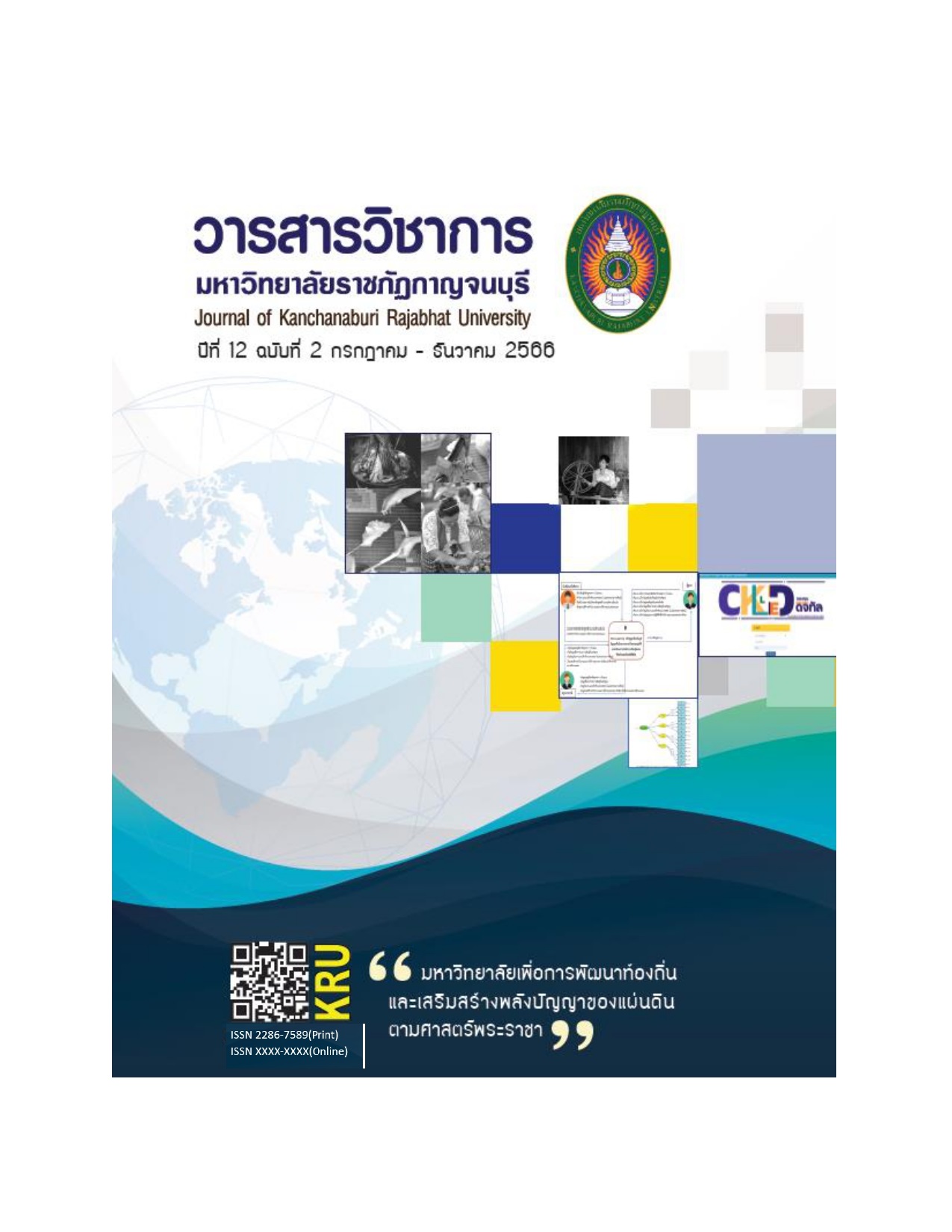ภาวะการมีรายได้ระหว่างเรียนที่เกี่ยวข้องกับวิชาชีพวิทยาศาสตร์การกีฬาของนักศึกษา มหาวิทยาลัยการกีฬาแห่งชาติ วิทยาเขตลำปาง CONDITIONS OF EARNING INCOME WHILE STUDYING RELATED TO SPORTS SCIENCE PROFESSIONS OF STUDENTS OF THAILAND NATIONAL SPORTS UNIVERSITY LAMPANG CAMPUS
Main Article Content
Abstract
This research aims to study the living conditions of Thailand National Sports university students. The questionnaire survey had been utilized for data collecting by the university’s Lampang campus. The research primarily begins with quantitative research, intending to ameliorate a system to foster work, along with academic life of students with sport science professions by analyzing the data obtained. The research found that most of the students, 157 out of the 167 students being studied, worked while pursuing their degrees to earn income, or 95.15 percent of the sample studied. The majority group of the students who worked while studying comprised of fitness coaches or personal trainers, consisting of 36 students or 21.82 percent of the sample group. Out of 157 students that worked, 122 students or 77.71 percent worked full-time, together with 80 students or 50.96 percent had part-time jobs.
In terms of personality improvement and self-development, the overall opinions were at a relatively high level with an overall mean of 3.32. There was also a high level of overall opinions with respect to the skill development aspect, scoring a mean of 3.44. The overall
opinion with the economic aspect was at a high level with a mean value of 3.48. When observing the outcomes of earning income while studying, the research found that 132 of the 157, or 84.08 percent, who worked while studying attained better grades. Furthermore, 157 of the students or 100 percent became more responsible people. Besides, 131 of those who worked while pursuing their studies or 83.44 percent made more friends. Additionally, 157 or 100 percent became more self-confident. Likewise, 128 or 81.53 percent earned higher income to cover their expenses. Ultimately, 110 or 70.06 percent of the students who worked were involved in preferable social
activities.
Article Details

This work is licensed under a Creative Commons Attribution-NonCommercial-NoDerivatives 4.0 International License.
References
พรพิมล คะโยธา กุศล รักญาติ สุจิตรา พลเชียงสา และชัญญา แสงสุริยา. (2557). ศึกษาความต้องการและลักษณะกิจกรรมหารายได้พิเศษระหว่างเรียนที่เหมาะสมกับนักศึกษาระดับปริญญาตรี คณะสาธารณสุขศาสตร์ มหาวิทยาลัยขอนแก่น. วารสารมหาวิทยาลัยขอนแก่น, 2(3), 177-189.
มหาวิทยาลัยการกีฬาแห่งชาติ. (2561). ยุทธศาสตร์มหาวิทยาลัยการกีฬาแห่งชาติ (พ.ศ. 2561 – 2565). อัดสาเนา.
ศิริขวัญ วงค์สวัสดิ์. (2552). การสารวจความต้องการทางานนอกเวลาเรียนของนักศึกษาระดับปริญญาตรี คณะวิทยาศาสตร์ มหาวิทยาลัยเชียงใหม่ ปีการศึกษา 2552. รายงานการวิจัย มหาวิทยาลัยเชียงใหม่ สานักงานคณะกรรมการการอุดมศึกษา. (กรอบแผนอุดมศึกษาระยะยาว 15 ปี). ฉบับที่ 2 (พ.ศ. 2551-2565).
กรุงเทพฯ: จุฬาลงกรณ์มหาวิทยาลัย.
Krejcie, R.V., & D.W. Morgan. (1970). Determining Sample Size for Research Activities. Educational and Psychological Measurement, 30(3), 607 – 610.


